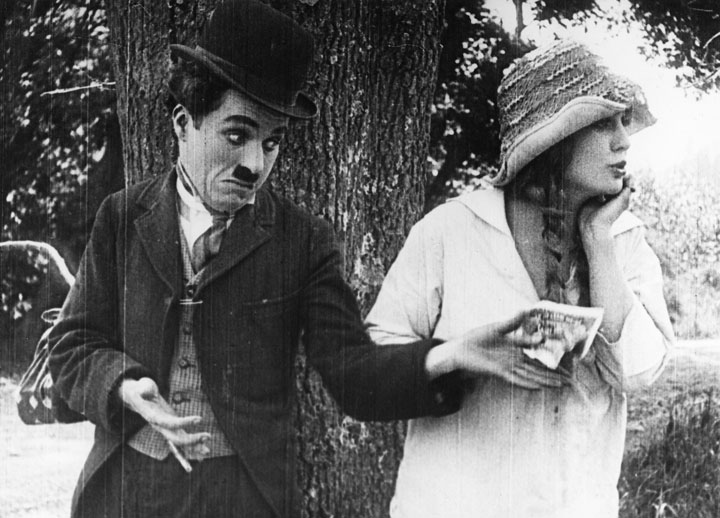I have been going to the BFI a lot lately, mostly to watch the selection of early Chaplin shorts they have been showing, with live piano accompaniment. What strikes me after watching these early gags is that they amplify my (already substantial) appreciation of Chaplin's later, and truly great work a la Modern Times, City Lights, The Circus...
They illustrate retrospectively the enormity of the critical leap made by Chaplin: transferring the 'little tramp', a comedic character designed for these 15-20 minute slapstick, slapdash, silent 'sitcoms' whose sole purpose is entertainment, into the radically different context of full length feature films dealing with 'big themes'; turning the Tramp's apparent weaknesses as a 'serious' dramatic instrument - principally his vaudevillean, two-dimensional silent-screen naïveté - into a superb critical tool, and casually deploying along the way a wealth of excellent commentary on everything from love and relationships to social class, capitalist industrialization, and the rise of Nazism. (at a time when Hitler was still somewhat of a visionary hero in America and Time's 'man of the year', while Chaplin's The Great Dictator was received with derision by the public at large, only later to be hailed as a work of prescient genius.) 
One could argue that Benigni does something like this in La Vita è bella; but the achievement is clearly nowhere near as original, extensive, or impressive. I do not necessarily agree with those of his critics who found his treatment of the Holocaust as offensive; he simply never achieves anything like the same critical depth or richness. One could even argue that there are grounds for 'offensiveness' in Benigni's treatment, not so much for his use of comedy, but for his doing it without the two-dimensional naïveté and innocence of Chaplin's Tramp, without the proper distance (Benigni's is ultimately a serious character who knows what is going on but protects his son by inventing a fairy tale)...
Admittedly, even in some of Chaplin's early shorts there are occasional flashes of brilliant social commentary, particularly on matters of social class. And the Tramp's very being who he is, is in a sense already a subversive move which it is all too easy to take for granted: it is not simply that he is a 'tramp', a specimen of the lowest of the 'lower classes'; it is precisely his free-wheeling nonchalance, his lack of any acute awareness of or anger about his own plight - his two-dimensionality - that is most subversive...
The Tramp, despite the passage of time, is simply unparalleled.
Tuesday, 16 September 2008
Early Chaplin Shorts: The Little Tramp as Critical Tool
Subscribe to:
Post Comments (Atom)

No comments:
Post a Comment